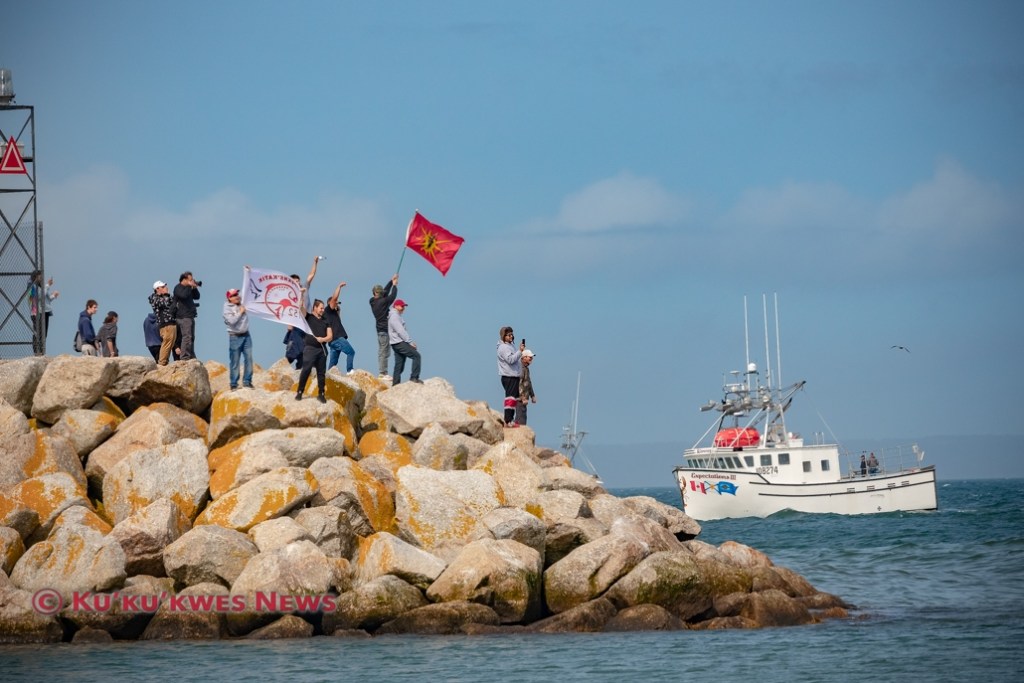The real reason for the recent confrontations between Indigenous and non-Indigenous fishers is that Ottawa has failed abysmally for more than two decades to negotiate with First Nations to define what constitutes a moderate living.

Mi’kmaw fishermen were frustrated. On Sept. 17, 1999, the Supreme Court of Canada had reaffirmed rights established in peace and freedom treaties with the British more than 200 years before. Those treaties had guaranteed them the right to fish and hunt and pursue what the court called, without explaining, a “moderate livelihood.”
Two months later, following some violent on-the-water confrontations and a plea for a rehearing from angry non-Indigenous fishers, the court reaffirmed its original decision but added that the federal government could still regulate the Indigenous fishery if there were concerns about conservation, if the government could justify those concerns and if it first consulted with First Nations.
The court, however, once again failed to define what it meant by moderate livelihood.
For 21 years, First Nations fishers have been in a kind of limbo waiting while Ottawa dithered over negotiations to clarify the court’s vagueness.
That’s not to suggest nothing changed. In 1999, the Indigenous fishery had revenues of $3 million. Today that fishery —which employs close to 1,700 Indigenous fishers and plant workers — is worth more than $150 million a year, a significant increase but still just a few fish in the barrel of what has also become a $2 billion a year industry. First Nations, it’s worth noting, have used those increased fishing revenues to improve life for all their members.
Much of the growth of the Indigenous fishery happened because Ottawa unilaterally changed the game without ever completing (perhaps even beginning) the more fraught job of defining moderate livelihood. Instead, beginning in 2000, it channeled $545 million to buy existing licences, boats and gear and redistributed them to Indigenous communities — but always within the existing fishing quota framework.
According to a 2007 report, “After Marshall: Implementation Of Aboriginal Fishing Rights In Atlantic Canada,” the government’s decision to do that rather than expanding the fishery pie was probably influenced by its own failure to manage the cod stocks in the 1990s, as well as its desire to minimize friction between “licenced” non-Indigenous fishers and the “un-licenced” Indigenous fishers.
“I don’t believe it was the only option,” Melanie Wiber, one of the report’s authors, told the CBC’s Nic Meloney recently, “but it fit within the sort of paranoid framework of a government that’d already created one crisis in the fisheries through bad fisheries management.”
So the question of what’s a moderate livelihood still hangs over the fishery.
And that is why, on Sept. 17, 2020 — not coincidentally and symbolically 21 years after the first Marshall decision — the Sipekne’katik First Nation held a celebratory ceremony in Saulnierville, NS, attended by members of the Mi’kmaq Grand Council and hundreds of supporters. At the event, it distributed seven moderate livelihood fishing licences (each allowing for 50 lobster traps) to Indigenous fishers, thus formally establishing its own Indigenous-regulated, rights-based fishery and allowing licence holders to catch and sell their catch.
Their unilateral declaration was the inevitable result of those decades of frustration.
Frustration of a similar — and different — sort prompted the outraged response from many of the region’s non-Indigenous fishermen, some of whom have been fishing these same waters for generations. Although some of their arguments may seem logic-challenged— the Indigenous fishery is, and probably will continue to represent, a small fraction of Nova Scotia’s fishing industry, and moderate fishing outside the Department of Fisheries’ regulated seasons doesn’t represent a scientific risk to lobster stocks — their frustrations are no less real for all of that.
As with Indigenous fishers, the frustration comes from uncertainty, and that uncertainty is, once again, the result of the failure successive Liberal and Conservative federal governments — messed over by Messrs. Jean Chrétien, Paul Martin, Stephen Harper and Justin Trudeau, along with their many and various, and variously ineffective fisheries minions — to show leadership or take responsibility for helping define moderate livelihood or establish what constitutes conservation concerns.
No wonder so many fishers have given up on Ottawa.
Late last week, in fact, in the shadow of the sometimes violent confrontations in Saulnierville, the leaders of the Potlotek First Nation and the Richmond County Inshore Fishermen’s Association in Cape Breton found common cause, declaring their understanding of one another, and their understanding of who is their shared enemy.
After a membership meeting to discuss a planned Potlotek moderate livelihood fishery in their district, Gilbert Boucher, the president of the association, told the Chronicle Herald’s Aaron Beswick that First Nations fishermen were “just exercising their right. We live alongside one another. They are good people.”
After his members met, he spoke with Wilbert Marshall, the chief of Potlotek.
“Our struggle is not with commercial fishermen,” Marshall agreed. “It is with DFO.” Ottawa, he added, “has got to stop playing politics with this. We want to fish and [non-Indigenous fishermen] want to know what will transpire so they can make plans.”
Seems like a simple request.

Which brings us back to Ottawa and the current fisheries minister, Bernadette Jordan, also the federal MP for South Shore–St. Margarets.
Last week, the minister flip-flopped, initially declaring that, “until an agreement is reached with DFO, there cannot be a commercial fishery outside the commercial season.” A few days later, she issued another statement — with Carolyn Bennett, the minister for Crown-Indigenous Relations — supporting a moderate Indigenous fishery and declaring “there is no place for the threats, intimidation, or vandalism that we have witnessed in South West Nova Scotia. This is unacceptable.
This government,” the statement read (Jordan herself not being available for an actual interview to explain herself), “is firmly committed to advancing reconciliation, respecting Indigenous treaties, and implementing First Nation rights, and we firmly believe that respectful, constructive dialogue is the way to achieve this.”
The problem to this point — a point 21 years removed from the court decision — is that Ottawa and First Nations have failed to agree on what constitutes a moderate livelihood.
“The issues surrounding this fishery are longstanding, complex, and deeply personal to all involved,” Jordan’s statement admitted. “The goal is, and always has been, to further implement First Nations’ rights and have everyone participate in a constructive and productive fishery, for the benefit of all communities in Nova Scotia.”
It’s past time for the minister to get on with finally, actually doing that job.
A version of this column originally appeared in the Halifax Examiner.
To read the latest column, please subscribe.




 STEPHEN KIMBER, a Professor of Journalism at the University of King's College in Halifax and co-founder of its MFA in Creative Nonfiction Program, is an award-winning writer, editor and broadcaster. He is the author of two novels and eight non-fiction books. Buy his books
STEPHEN KIMBER, a Professor of Journalism at the University of King's College in Halifax and co-founder of its MFA in Creative Nonfiction Program, is an award-winning writer, editor and broadcaster. He is the author of two novels and eight non-fiction books. Buy his books